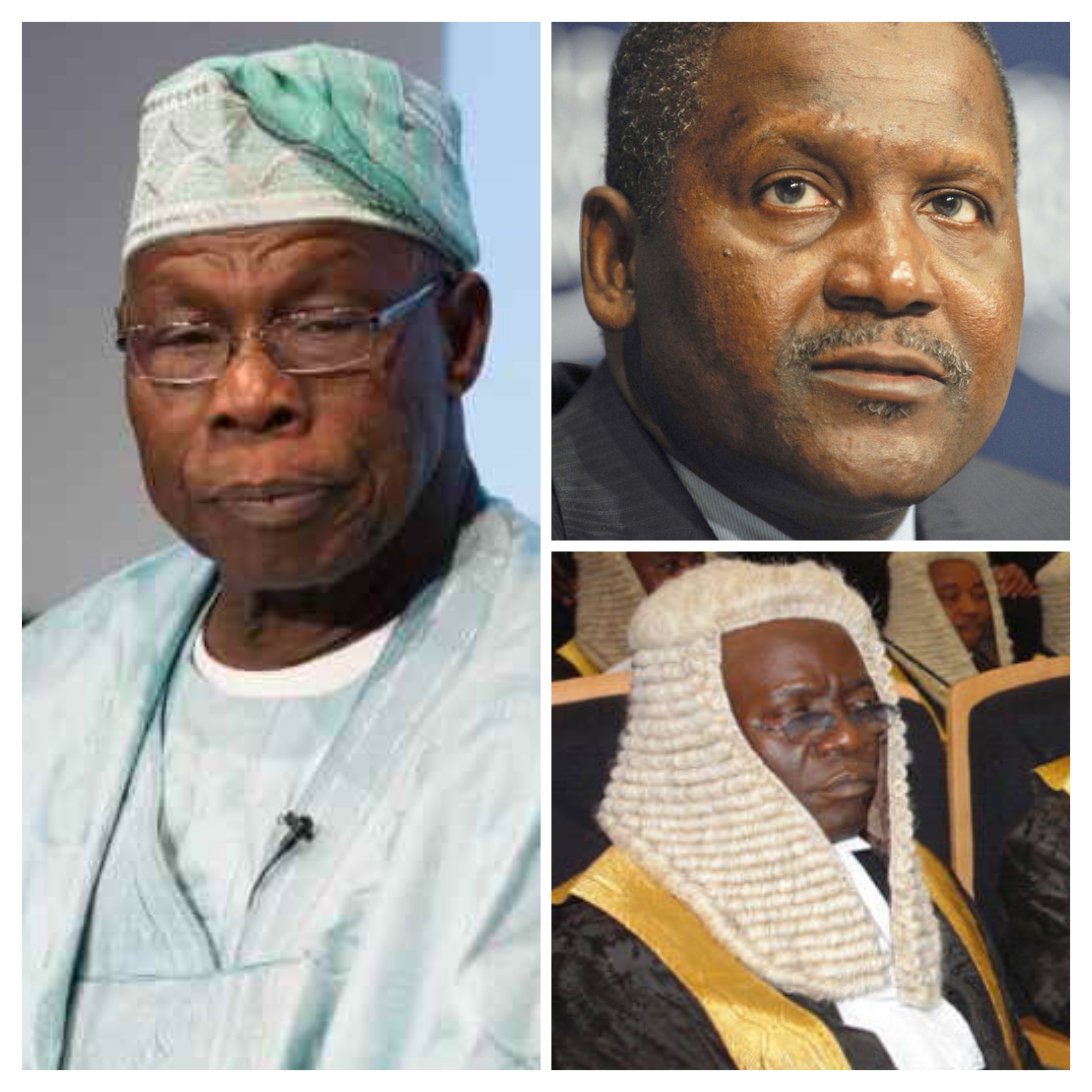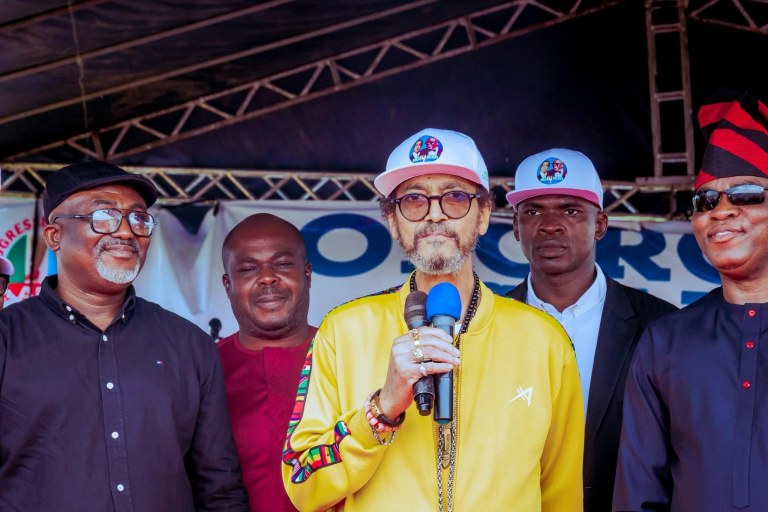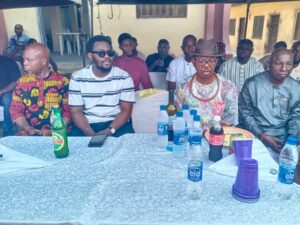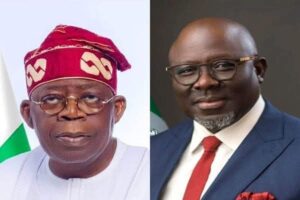*As facts emerged indicts President Olusegun Obasanjo
*Yar’Adua cancel the sales of Port Harcourt, Kaduna refineries to Dangote because of Obasanjo’s Shares In the Consortium Says Falana-Led ASCAB
* Lie NNPC turned down Aliko Dangote’s $750M offer to manage Port Harcourt, Warri, and Kaduna refineries- Obasanjo
By Matthias Ogbagah, Delta
DELTA – Facts emerged on Friday as to why late President Umusa Yar’Adua reversed sales of Port Harcourt and Kaduna refineries to Dangote and its partners.
Prominent human rights lawyer, Femi Falana (SAN) explained why former President Umaru Yar’Adua reversed the sale.
A group chaired by human rights lawyer Femi Falana (SAN) has revealed that the late President Umaru Musa Yar’Adua nullified the controversial sale of the Port Harcourt Refinery to a consortium led by Dangote Oil after finding out that the deal was not in the nation’s best interest.
According to Falana, the law requires the Vice President to lead the National Council on Privatisation (NCP), which oversees the sale of government properties. However, he claims Obasanjo ignored this rule and went ahead without involving his Vice President, Atiku Abubakar.
According to him, “On May 17, 2007, President Obasanjo sold a 51% stake in the Port Harcourt refinery to Bluestar Oil for US$561 million. In another transaction that took place on May 28, 2007, President Obasanjo sold 51% shares in Kaduna Refinery to Bluestar Oil for $160 million,” Falana revealed.
The buyer, Bluestar Oil, was a partnership between Dangote Oil, Zenon Oil, and Transcorp. The deal raised eyebrows because Obasanjo reportedly owned shares in Transcorp through a “blind trust.” Making matters worse, these sales were rushed through just before Obasanjo left office.
Bluestar Oil, according to the Alliance on Surviving COVID-19 and Beyond (ASCAB) Chair, Falana, was a consortium comprising Dangote Oil, Zenon Oil, and Transcorp. On May 28, 2007, in a similar transaction, 51% of Kaduna Refinery was sold to Bluestar Oil for $160 million.
“Bluestar Oil was a consortium of three domestic companies, including Dangote Oil, Zenon Oil, and Transcorp. Before the deal, President Obasanjo had acquired large shares in Transcorp through ‘blind trust’. Many interest groups in the country questioned the legal validity and moral propriety of the sales as they were consummated in the last days of the Obasanjo Administration,” Falana alleged, raising concerns about conflicts of interest.
The senior lawyer pointed out that under the Privatisation and Commercialisation Act, the Vice President serves as the chairman of the National Council on Privatisation (NCP), which oversees the sale of public enterprises.
However, Obasanjo reportedly sidelined then-Vice President Atiku Abubakar and directly managed the privatization process for several key national assets.
Falana said on May 17, 2007, President Obasanjo sold a 51% stake in the Port Harcourt refinery to Bluestar Oil for US$561 million.
He explained that in another transaction that took place on May 28, 2007, President Obasanjo sold 51% shares in Kaduna Refinery to Bluestar Oil for $160 million.
He noted that the two powerful trade unions in the oil industry —the National Union of Petroleum and Natural Gas Workers (NUPENG) and the Petroleum and Natural Gas Senior Staff Association of Nigeria (PENGASSAN) kicked against the privatization of the two refineries on the grounds of conflict of interest and lack of due process.
“They also alleged that the nation had been shortchanged as the shares acquired in the Port Harcourt refinery for $516 million were worth US$5 billion.
“Convinced that the deals were not in the national interest, both unions proceeded on a 4-day strike that almost paralyzed the Nigerian economy in June 2007. The strike was called off based on the assurance of the federal government to the effect that the deals would be fully investigated,” Falana stated.
He said upon the conclusion of the investigation by the federal government, the purported privatization of the Port Harcourt and Kaduna refineries was canceled by then-President Umaru Yar’adua.
“It is on record that the cancellation of the privatisation was not challenged in any court as it was carried out contrary to the letter and spirit of the Privatisation and Commercialisation Act.
“The Alliance on Surviving Covid and Beyond (ASCAB) hereby calls on NUPENG and PENGASSAN to intensify their historical struggle aimed at as a counterpoise to the renewed campaign for the privatisation of the nation’s refineries.
“Those who are awaiting the privatisation of the refineries in a manner at variance with the national interest should be advised to set up their own refineries like the Dangote Group,” the statement added.
Responding:
Former President Obasanjo had revealed how the Nigerian National Petroleum Corporation (now Nigerian National Petroleum Company Limited) turned down a $750 million offer from Aliko Dangote to manage the Port Harcourt, Warri, and Kaduna refineries in 2007 during his administration.
Speaking during an exclusive interview with Channels Television on Thursday, Obasanjo revealed that although the NNPC was aware of its inability to effectively manage the national refineries, it still rejected Dangote’s proposal.
Obasanjo said that Dangote made his offer after Shell turned down his (Obasanjo) offer to manage the three refineries because of corruption, poor maintenance, low production output, and two other reasons.
The former President said, “It was after that that Aliko got a team together, and they paid $750 million to take part in PPP (Public–Private Partnership) in running the refineries.
“My successor (Yar’Adua) refunded their money and I went to my successor and told him what transpired. He said NNPC said they wanted the refineries and they could run it. I said but you know they cannot run it.”
“The Alliance on Surviving Covid and Beyond (ASCAB) hereby calls on NUPENG and PENGASSAN to intensify their historical struggle aimed at as a counterpoise to the renewed campaign for the privatisation of the nation’s refineries.
“Those who are awaiting the privatisation of the refineries in a manner at variance with the national interest should be advised to set up their own refineries like the Dangote Group,” the statement added.
Former President Obasanjo had revealed how the Nigerian National Petroleum Corporation (now Nigerian National Petroleum Company Limited) turned down a $750 million offer from Aliko Dangote to manage the Port Harcourt, Warri, and Kaduna refineries in 2007 during his administration.
Speaking during an exclusive interview with Channels Television on Thursday, Obasanjo revealed that although the NNPC was aware of its inability to effectively manage the national refineries, it still rejected Dangote’s proposal.
Obasanjo said that Dangote made his offer after Shell turned down his (Obasanjo) offer to manage the three refineries because of corruption, poor maintenance, low production output, and two other reasons.
The former President said, “It was after that that Aliko got a team together, and they paid $750 million to take part in PPP (Public–Private Partnership) in running the refineries.
“My successor (Yar’Adua) refunded their money and I went to my successor and told him what transpired. He said NNPC said they wanted the refineries and they could run it. I said but you know they cannot run it.”






